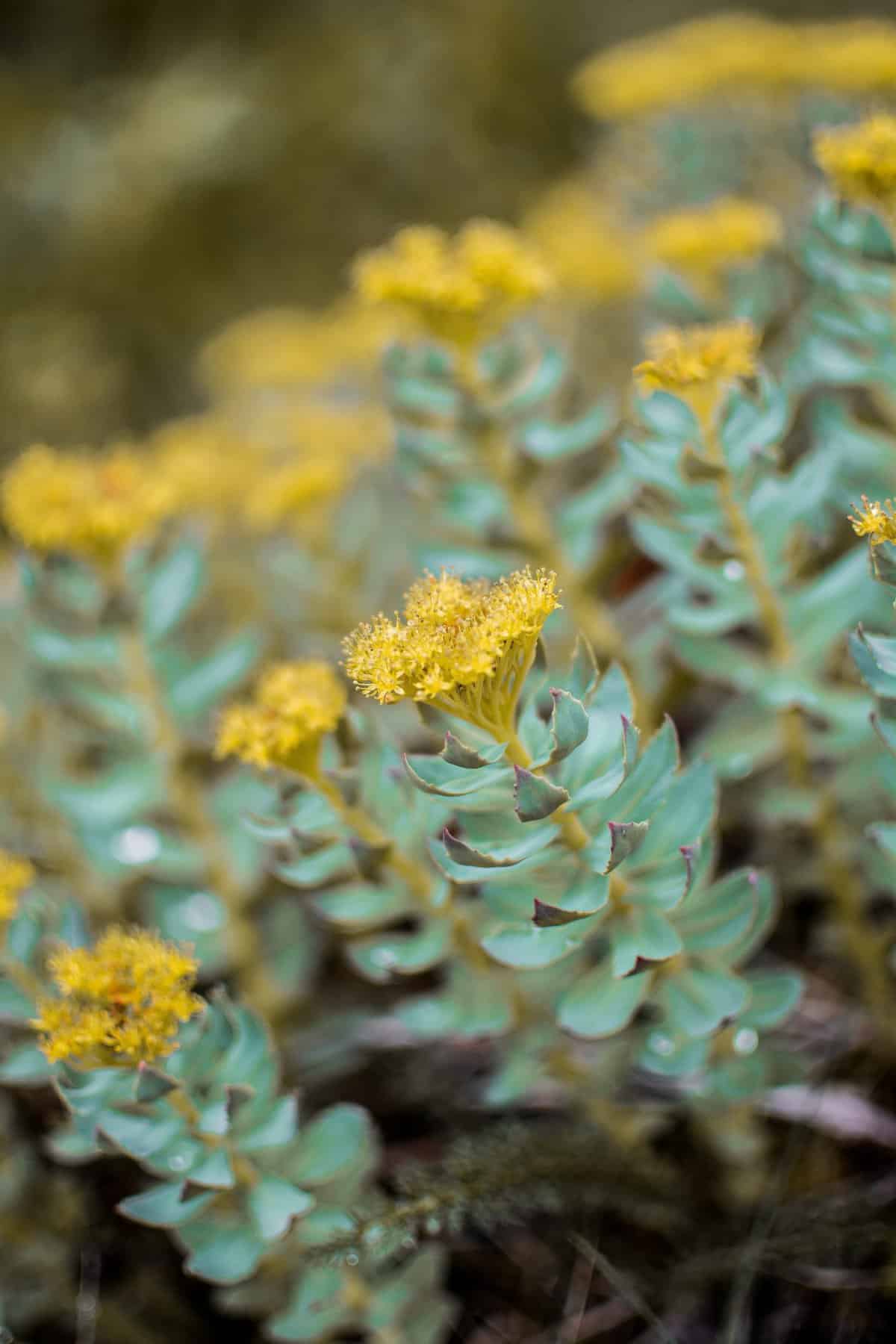
succulent
Rhodiola Rosea, also known as “golden root” or “arctic root,” is an herb that grows in cold, mountainous regions of Europe and Asia. Its root contains over 140 active ingredients, the two most potent of which are rosavin and salidroside. People have used rhodiola for centuries to treat various conditions.
The use of rhodiola as a medicinal plant date back thousands of years. Vikings relied on it for endurance, while ancient Chinese emperors sent expeditions to Siberia to bring it back for medicinal preparations. Its adaptogenic properties have been long appreciated in traditional medicine systems.
Modern research has investigated rhodiola for its potential to enhance well-being and physical performance and to help manage stress. Some studies suggest that it can improve mental performance, such as memory and concentration, and reduce symptoms of fatigue.
Rhodiola is available in several forms, including capsules, tablets, and liquid extracts. Each form has different concentrations of active ingredients, which can affect their potency and efficacy.
A tincture is a concentrated herbal extract made by soaking the herb in alcohol and water. An extract, on the other hand, can be alcohol-free and is often presented in powdered form. Both forms preserve the bioactive compounds of the rhodiola root.
Rhodiola extract has been studied for its health benefits, which include supporting the immune system, enhancing energy and stamina, and potentially reducing recovery time after intense exercise.
The terms “arctic root” and “golden root” are synonymous with rhodiola. They refer to the plant’s ability to thrive in cold climates and its golden colored roots, respectively. These roots are the source of the plant’s potent adaptogenic effects.
Adaptogens like rhodiola are believed to help the body resist physical, chemical, and biological stressors. This includes supporting the immune system, potentially helping the body defend against pathogens and recover more quickly from illness.
Studies have shown that rhodiola may have a positive impact on brain function. It has been associated with improvements in attention, cognitive function, and reduced mental fatigue during stressful situations.
Rhodiola may improve exercise performance by increasing the red blood cell count, which helps deliver oxygen to muscles more effectively. This could lead to improved endurance and reduced perception of effort during exercise.
Several studies indicate that rhodiola can significantly reduce the symptoms of stress and anxiety. It is believed to do so by modulating the release of stress hormones and improving the body’s stress response system.
While there is no standard dosage for rhodiola, clinical studieshave used doses ranging from 200 to 600 mg per day. It’s important to start with a lower dose to assess tolerance before gradually increasing it if needed.
The appropriate dose of rhodiola may vary depending on the condition being treated. For example, a lower dose may be sufficient for managing mild stress, while higher doses might be required for combating chronic fatigue.
Rhodiola is generally considered safe, but some people may experience side effects such as dizziness, dry mouth, or sleep issues. It is important to consult with a healthcare provider before starting any new supplement.
Rhodiola can react with certain medications, such as antidepressants and blood pressure drugs. Discussing any potential reaction with a healthcare professional is crucial before beginning supplementation.
Rhodiola can be taken in various forms, including as a capsule, tablet, or liquid extract. The form you choose may depend on personal preference, desired effect, and ease of use.
Tinctures are a convenient way to consume rhodiola, as they can be easily added to water or another liquid. Extracts, often in powder form, can be mixed into smoothies or other foods.
Mixing rhodiola with food or liquids can make it easier to consume, especially for those who do not like swallowing pills. It can be added to teas, smoothies, or even incorporated into meals.
There is limited research on the safety of rhodiola for pregnant or breastfeeding women. As a precaution, these individuals should avoid rhodiola until more evidence is available and consult with healthcare provider.
Research on rhodiola shows promise in various areas, including stress relief, fatigue reduction, and improved mental and exercise performance. However, more large-scale human studies are needed to confirm these effects.
The quality of rhodiola supplements can vary significantly. Consumers should look for products that have been certified by third-party organizations to ensure they contain the advertised amount of active ingredients without contaminants.
Future research may focus on understanding the mechanisms behind rhodiola’s adaptogenic properties, as well as its long-term safety and efficacy. This could lead to more targeted uses of rhodiola in healthcare.
Before adding any new supplement to your routine, it is essential to consult with a healthcare professional. They can provide personalized advice based on your health history and current medications.
When discussing rhodiola with your doctor, be prepared to talk about your reasons for interest in the supplement, any current health concerns, and any other medications you’re taking.
If you are considering combining rhodiola with other medications, it is crucial to discuss this with your healthcare provider to avoid any potential reaction and side effects.
Rhodiola Rosea offers many potential health benefits, particularly in areas such as stress management and energy enhancement. While it should be used with care and under the guidance of a healthcare professional to ensure safety and effectiveness.
Nasal congestion is a common issue among infants. And it can be distressing and heart-wrenching…
Why is Gold Valued? Gold plays an important role in our life. It is a…
Imagine waking to the sounds of the sea gently brushing the shore, the smell of…
Vacations are a precious opportunity to step away from daily routines, unwind, and recharge. But…
For many, James Bond is the holy grail of masculinity, and the numberless attempts to…
If you run a business, you may think that you need to diversify to ensure…
This website uses cookies.